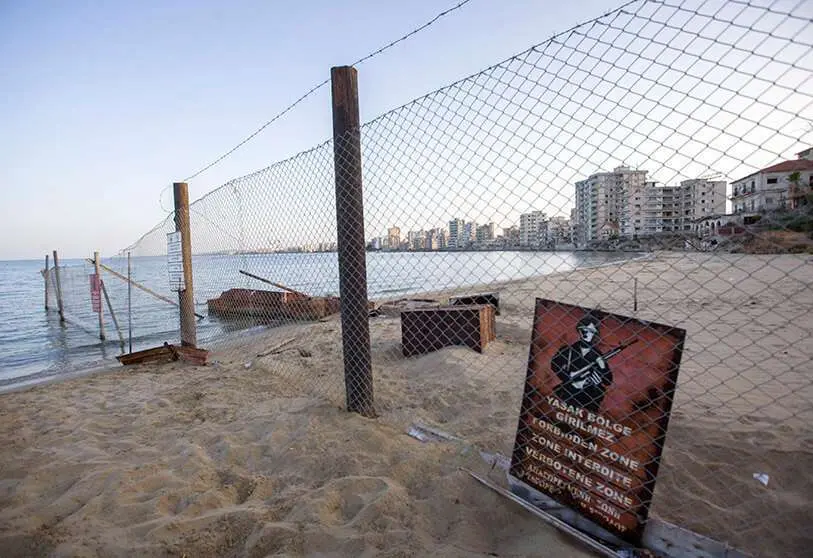European Parliament condemns Turkish actions

The European Parliament yesterday voted to condemn the decision by the Turkish Cypriot government, encouraged by Ankara, to reopen part of the Varosha suburbs in the eastern city of Famagusta. The condemnation is based on a joint resolution by the majority of the groups in the chamber, including the four main political families: the People's Party, the Social Democrats, the Liberals and the Greens. This vote has been seen as a way of putting pressure on the capitals in view of the upcoming European Council in December, where Turkey will play a predominant role in the debate and where some countries, such as France or Greece, will seek a harsh imposition of sanctions after President Erdogan's drift.

Following the pro-Greek coup d'état of 1974, the island of Cyprus is divided in two, although the so-called Turkish Republic of Northern Cyprus is only recognised by Turkey. Following the military coup, Ankara saw the situation of the Turkish Cypriot population in danger and launched Operation Attila, with which it invaded the island and established the aforementioned republic. Some of the enclaves inhabited by Greek Cypriots that were in the territory with the presence of Turkish forces were abandoned. Varosha, a major tourist area in the east of Cyprus, was one of them. The area has remained blocked by Turkish forces ever since, making it impossible for its original inhabitants to return. UN Security Council Resolution 550 protects the fact that only its original inhabitants can settle in the area. However, the opening and settlement of the Turkish Cypriot population is now being considered, which has led to alarm and condemnation from the European Parliament.

The vote went ahead with 631 MEPs voting in favour, a very large majority, and not only condemned the decision, but demanded the return of Varosha to its rightful inhabitants. It also calls on the European Council in mid-December to apply exemplary sanctions, for which this new Turkish action is just one more reason. Another aspect covered by the European Parliament's resolution is the proposal that the United Nations, which has a peacekeeping mission in Cyprus, UNFICYP, should monitor any population movements in Varosha. This mission has been in place since the early 1960s and consists of more than 1 000 troops, including civilians, military and police.

The decision to reopen Varosha is one more of the interferences with which Turkey continues to put pressure on Greece and Cyprus, and to alter the stability of the Eastern Mediterranean region. The approval of the resolution also legitimises the decisions that may be taken at the next European Council, to which France has already announced that it will apply harsh sanctions following Erdogan's last words to Macron and the continuous aggressions and confrontations with European Union member states. The situation within the European Union is more complicated than it appears. Ankara has a joker that it has not hesitated to use on other occasions, namely the blockade of the eastern Mediterranean migration route, easing the migratory pressure Greece has suffered in recent years. Turkey, in exchange for considerable economic aid-vital, given the country's situation-is in charge of managing part of this arrival of migrants, preventing them from reaching community soil and avoiding any repetition of harsh political discussions within the institutions.

France has already seen how NATO ignored its request for a review of Turkish aggressions against other members of the Atlantic Alliance, and even its withdrawal from the NATO naval operation in the Mediterranean was not enough to bring the debate to its attention. The aforementioned migration policy is not the only issue with which Ankara has the European Union in check. Germany has nearly three million people of Turkish origin, and the relationship between Berlin and Ankara therefore also has a certain domestic connotation that prevents the country from dealing freely with issues such as the application of sanctions. However, the interception of a Turkish ship by German troops under the umbrella of the Irini operation recently has raised the tone of the discourse between Germany and Turkey. In any event, it will not be until 10 and 11 December that we will know the real consequences of this whole escalation in the eastern Mediterranean, whether France, Greece and Cyprus are abandoned to their fate or whether, on the contrary, Brussels acts firmly in the face of Turkish interference.








